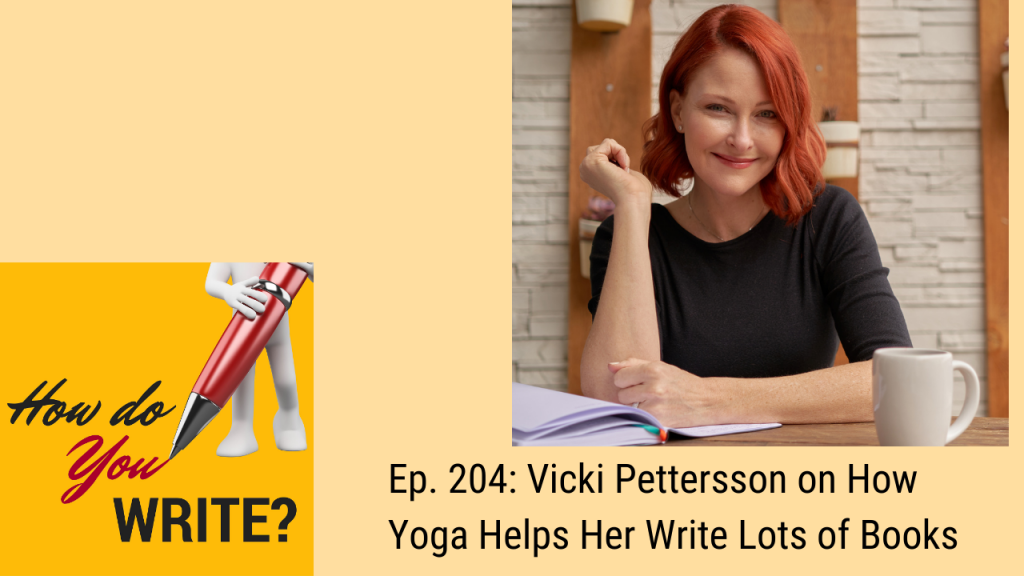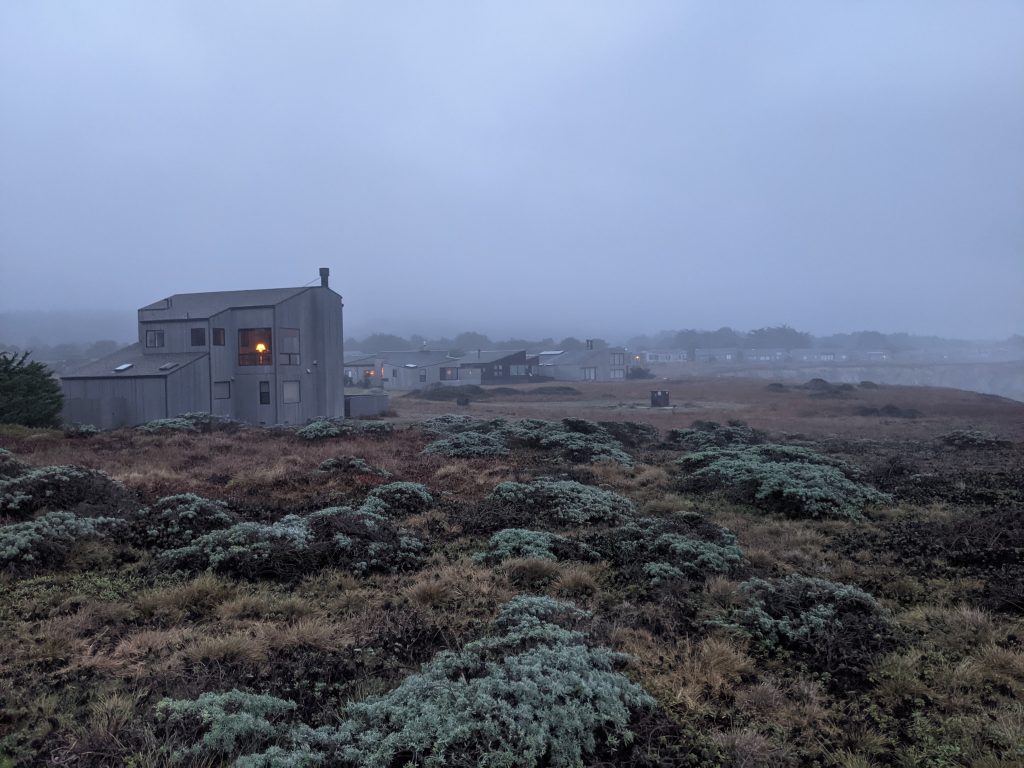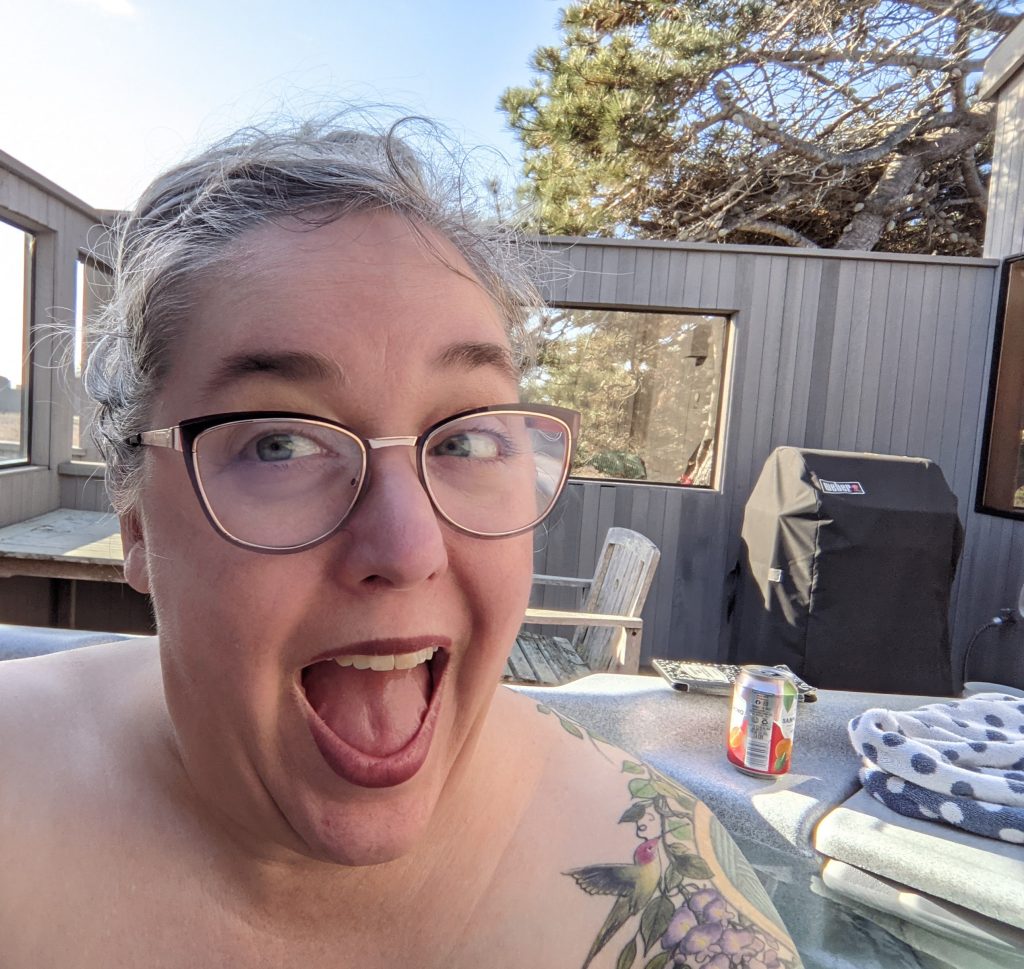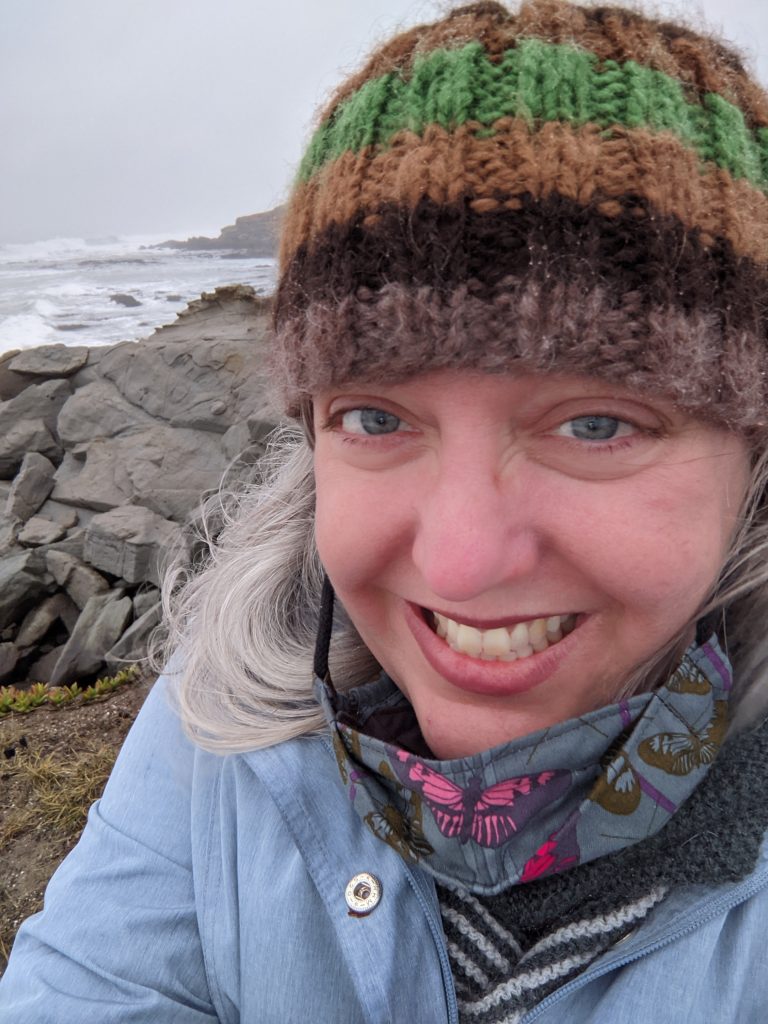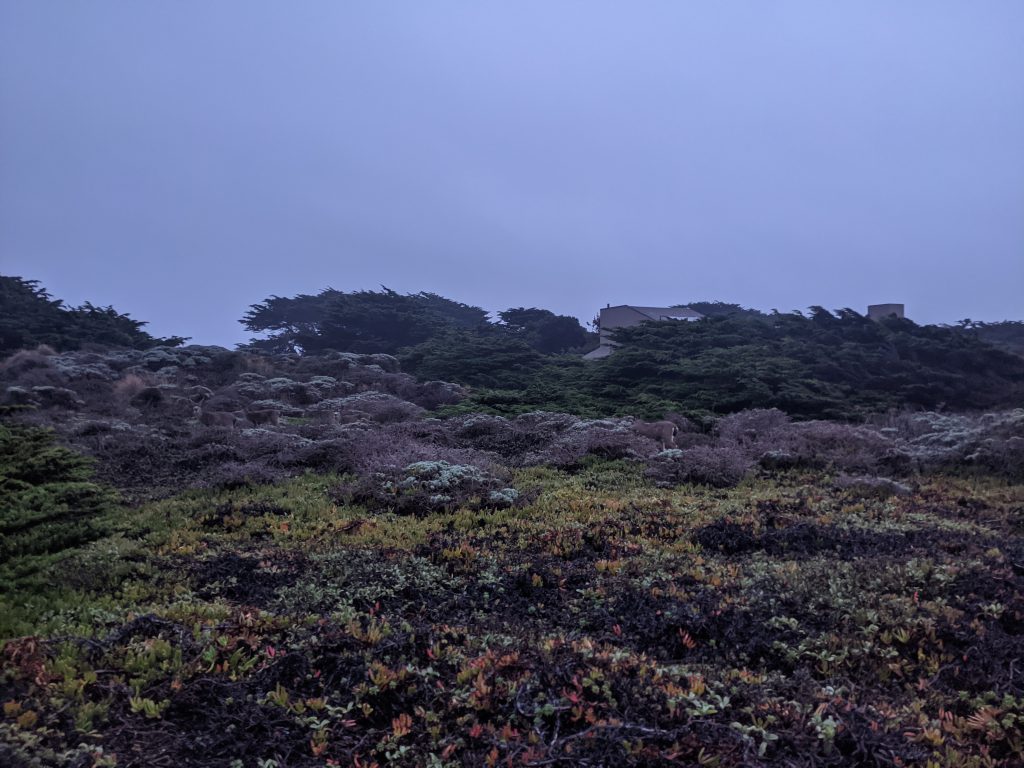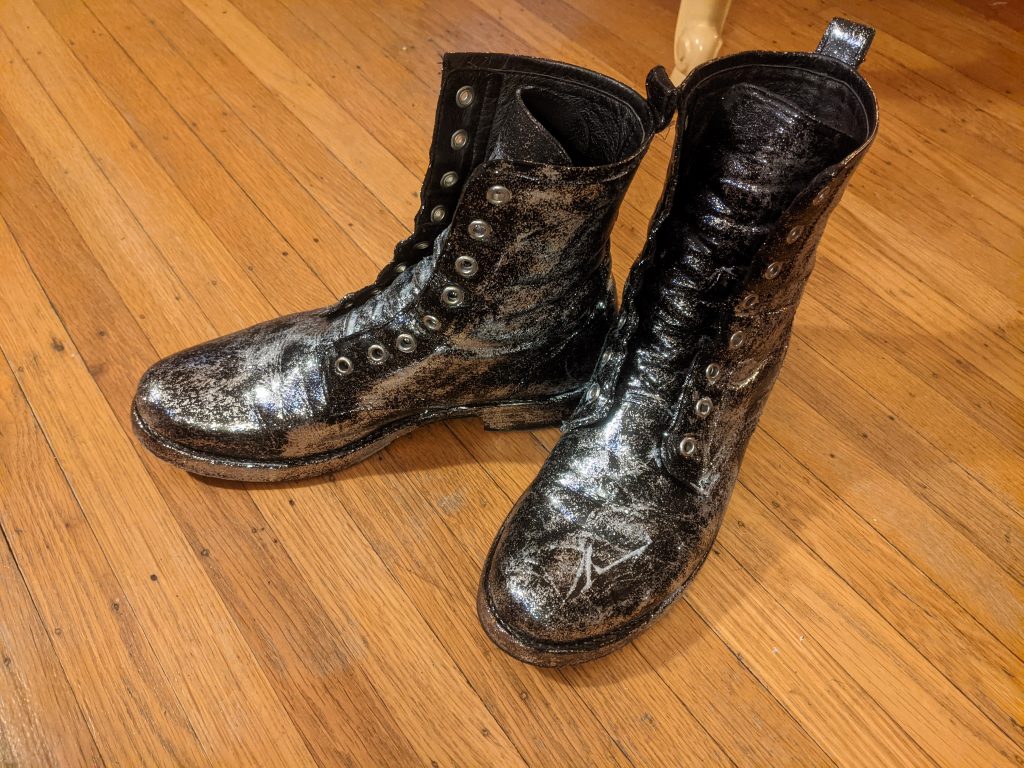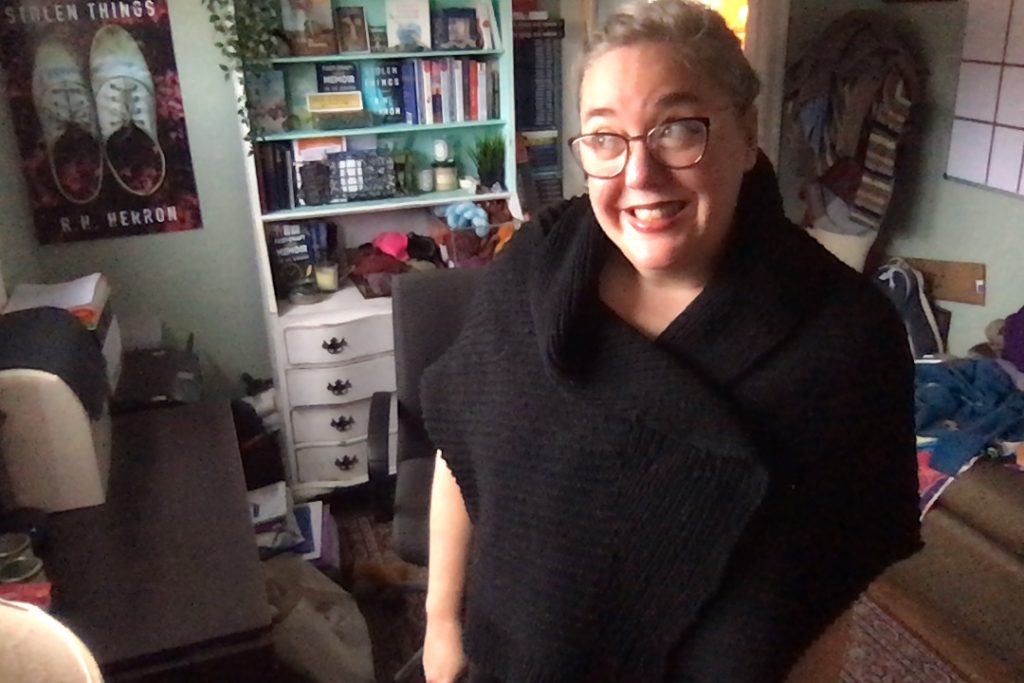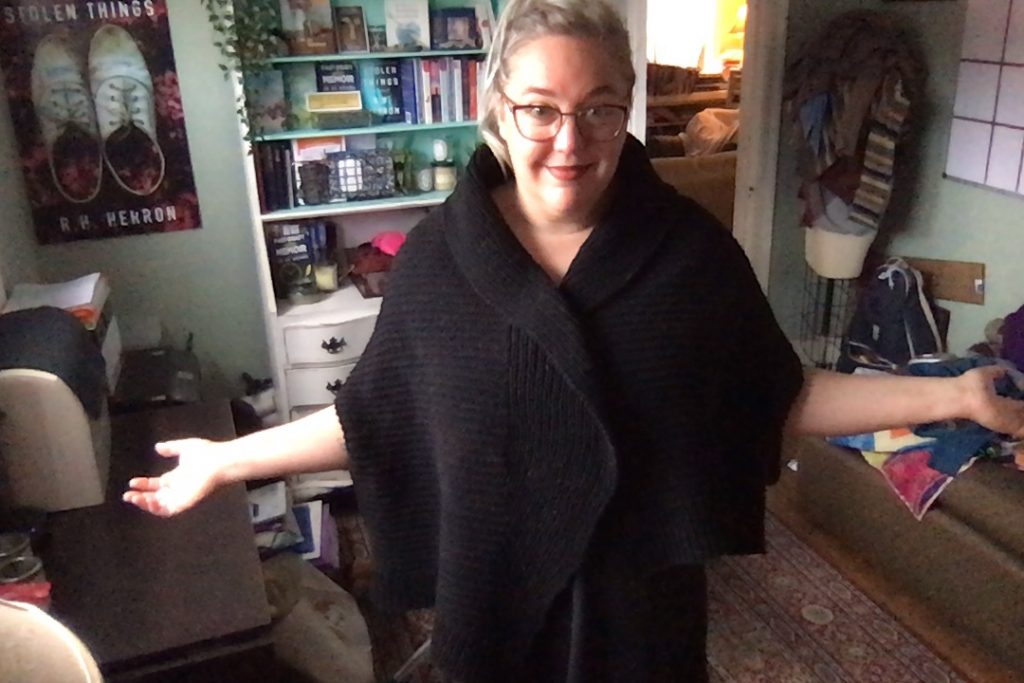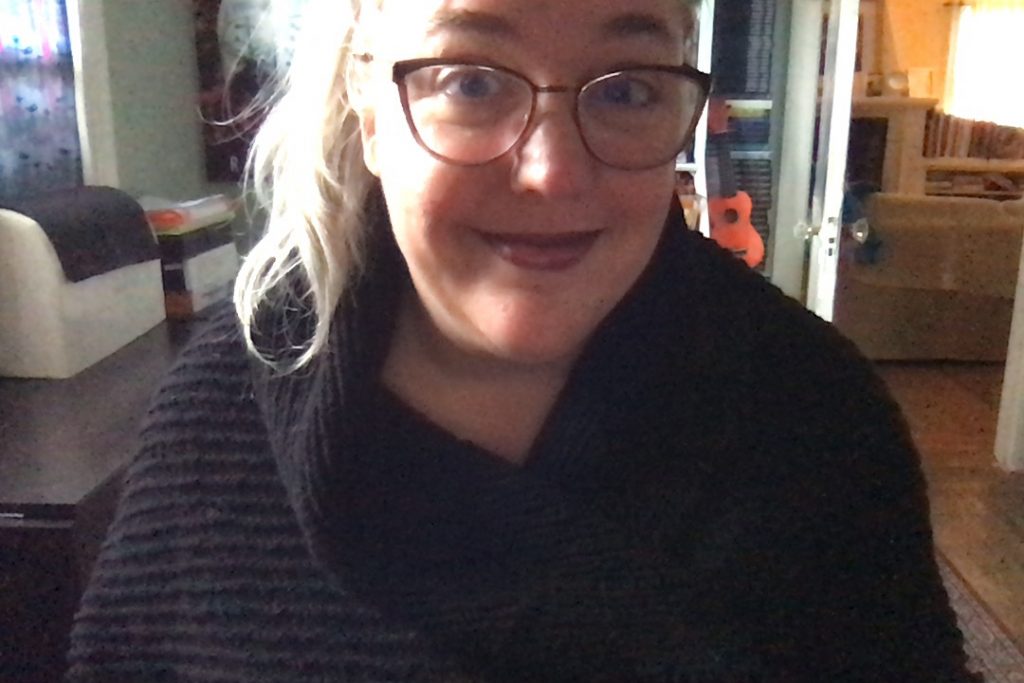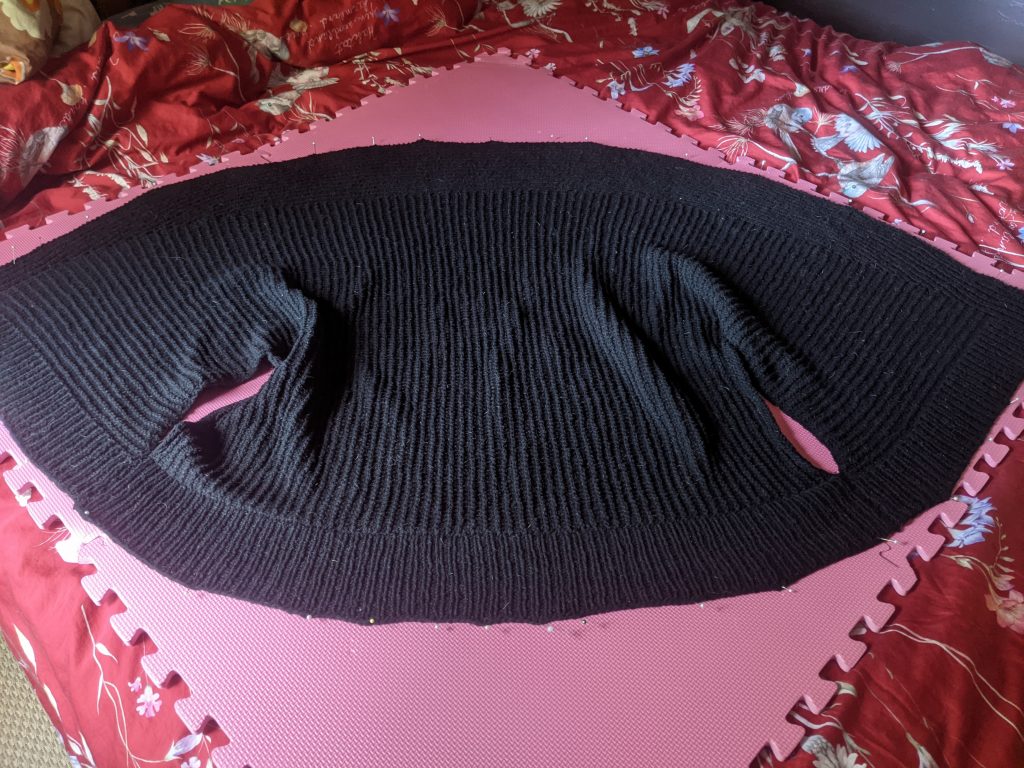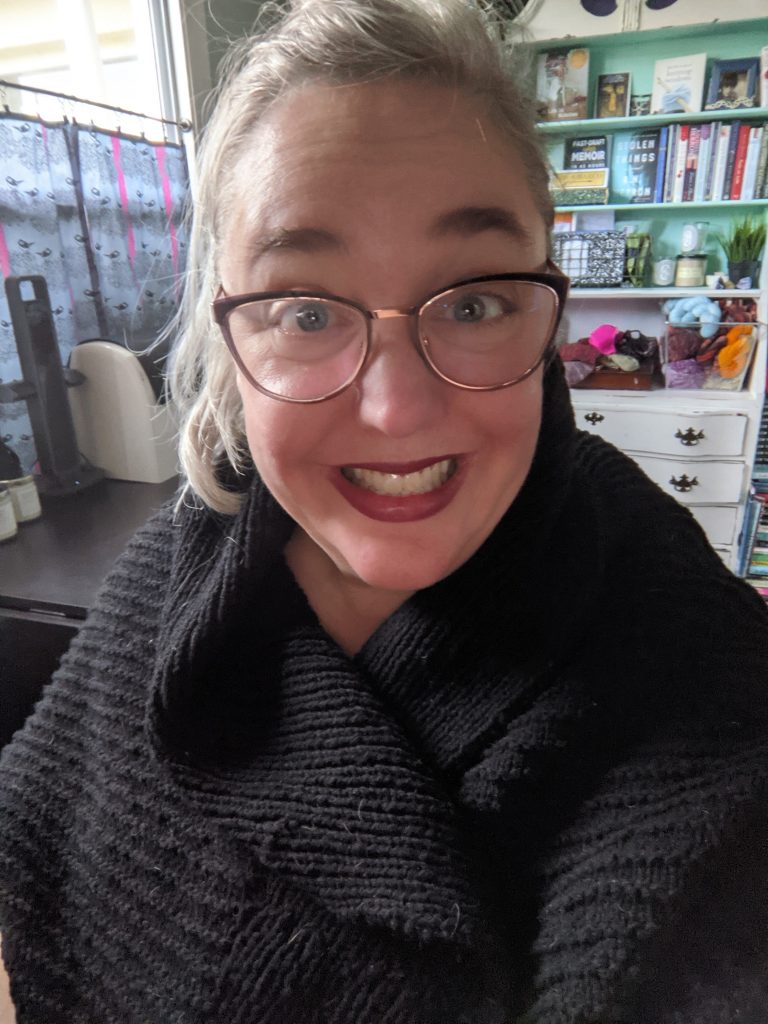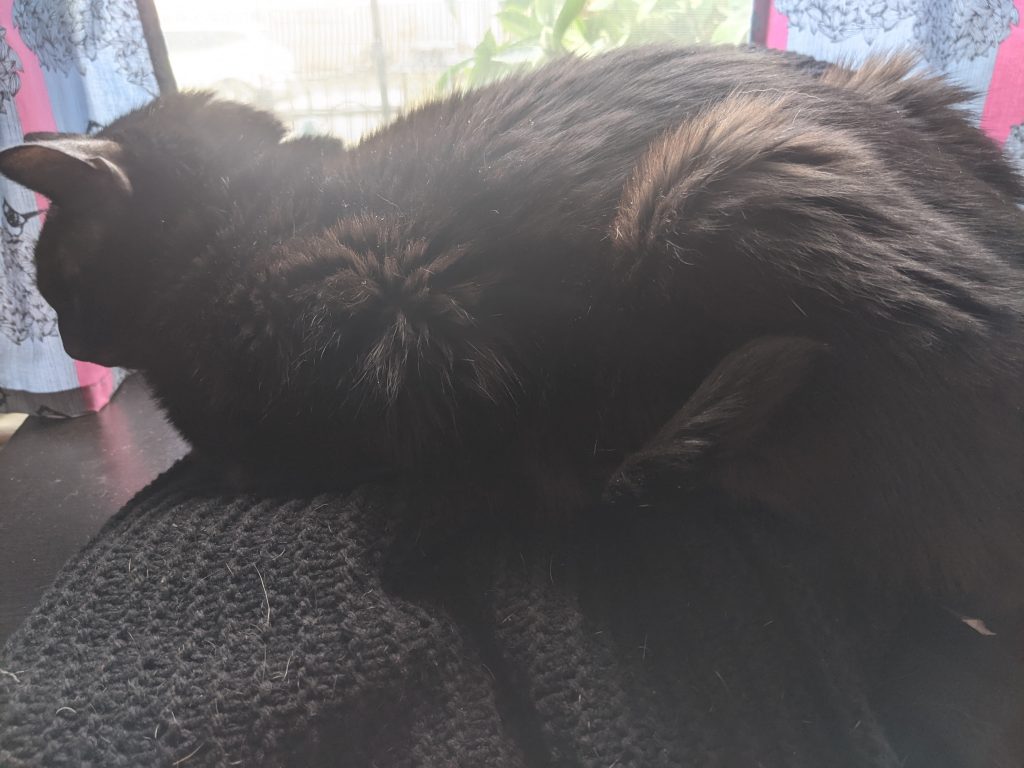Kati Gardner is a recovering actor, wife, and mom. She is a childhood cancer survivor and amputee who writes books about disability and kissing. Originally from Atlanta, she now lives and writes in Raleigh, North Carolina. She’s the author of Brave Enough and Finding Balance. You can find her on Twitter at @AuthorKati or on Instagram at AuthorKatiGardner.
How Do You Write Podcast: Explore the processes of working writers with bestselling author Rachael Herron. Want tips on how to write the book you long to finish? Here you’ll gain insight from other writers on how to get in the chair, tricks to stay in it, and inspiration to get your own words flowing.
Join Rachael’s Slack channel, Onward Writers!
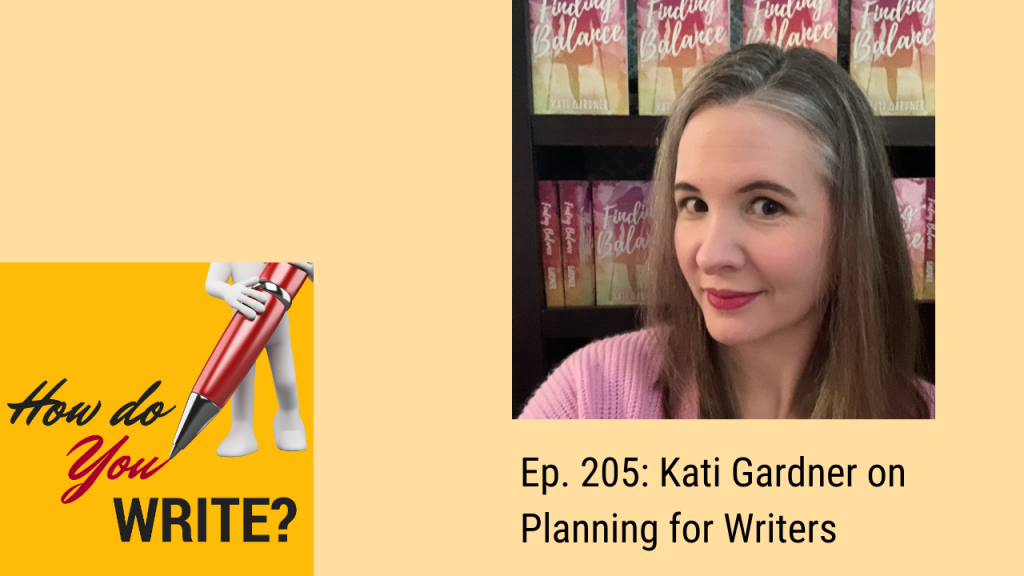
Transcript
Rachael Herron: [00:00:00] Welcome to “How do you Write?” I’m your host, Rachael Herron. On this podcast, I talk to authors about how they write, what their process is and how their lives fit together. I’ll keep each episode short so you can get back to writing.
[00:00:15] Well, Hello writers! Welcome to episode # 205 of “How do you Write?” I’m Rachael Herron. So glad that you’re here with me today. Today, we are talking to Kati Gardner and she is a delight. We talk about planning for writers. We talk a little bit about planners for those of you with a planner addiction like we have. We talk about how she wrote a book and then put it away and rewrote it and I’m always fascinated by that process. I’ve actually done it once myself and I always forget that. And she’s just so great to talk to, we go on little writing related tangents and I loved her energy. So you will enjoy this show. What’s going on around here? Well, I think I mentioned our dog is feeling better, so we’re not leaving the country immediately. It’s fantastic. You might even hear her snoring over that shoulders, the little dog and the bigger dog is behind me, possibly snoring and feeling better so that’s fantastic. We’re still moving forward with going to New Zealand. It’s just that we get to take our time and that’s a nice feeling. [00:01:26] What else? Oh, I finished my copy edits for Hush Little Baby and turn those in, so that book is off my desk entirely. I will probably have to look at proofs and I really hate looking at proofs. I never see, and I am not a person who can see my own typos. So when they ask you to check the proofs, to make sure the proofreader caught the errors that the copy editor misses and yes, the copy editor will miss things. And guess what? The proofer will also miss things. No book is perfect when it is printed, unfortunately. And, the author’s job is usually to look at that again and check for errors and they never see them. So that will be the last time I touch it. But hey, I swear to you. I honestly touch, I barely, barely look at it, I barely touch it. Just can’t stand it. I am at the point of not being able to stand this book and that’s great. That is where I exactly where I should be when I send it out forever. I really won’t see it again until it comes out in May, I believe, I think that is the month it comes out. So that will be fun, and in the meantime, I’ve been working a little bit on You’re Already Ready and working quite a lot of bit on planning my NaNoWriMo novel, which is going to be super fun to write. I wrote quite a bit last year in NaNoWriMo, but I actually didn’t end up ever using those words anywhere. It kind of threw those out. So this year I would like to have NaNo be something that I can use and that I have really planned for. So that is fun. [00:02:59] I wanted to tell you something else. Oh, if you’re watching on the video, I have wet hair and I just have to say that for the very first time I crossed the bay, in my car, drove through San Francisco out to aquatic park in the middle of the day. And when swimming in the Bay there, I have, I have been swimming a couple of times here in the East Bay, over in Berkeley, and I find it, it feels a little treasure, treacherous and scary to me because where I go, you can jump off the dock, but there’s no way back up the dock, unless you pay the $18 and swim with this swimming club on Sundays and they’re all very, very serious. Capital S, capital S for serious swimmers and I am not as serious swimmer. I am a paddler who swims really hard for a while, and then I get tired and then I bob around, like a little sea otter and over at aquatic park, there are always people swimming. It is also 10 degrees colder than it is over here in the East Bay, but that’s okay. I have a wetsuit, even though the people who swim there on a daily basis, the people who are members of the 250-year-old swimming clubs there, even though they mock the people with wetsuits. No, I put my feet in that and my hands in that and my head in that. And I thought I am so glad my body is not feeling this cold and I, for the very first time today, I really appreciated the wetsuit. Before I’ve always thought, is it really helping? Oh, it is helping. It is helping a lot. So I had a wonderful time doing that and it was pushing a boundary for me. To go swimming by myself, over in San Francisco where all of these excellent swimmers are swimming and it was wonderful. I feel really good. And I am nice and toasty warm now. So I am headed into RachaelSaysWrite, because it is Thursday afternoon. It is so fun to write with these people. So if you have considered joining us for Rachel Says Write, you can always look at, where is it? RachaelHerron.com/RachaelSaysWrite I believe is where I put it. And we write together for two hours and I haven’t gotten any writing done yet today. As has been happening lately on Thursdays, because I know that I have this solid two-hour block to write with other people on zoom. And for some reason I always write so much more there than I do any other place or any other time. [00:05:32] I just like writing with companionship. So I’m headed there now and I will let you head right over into the interview with Kati. Please enjoy. I hope you’re enjoying your own writing. Drop me a line somewhere anywhere and tell me how you are doing. And I wish you really, really excellent, happy writing. We’ll talk soon.This episode is brought to you by my book, Fast Draft Your Memoir. Write your life story in 45 hours, which is by the way, totally doable, and I’ll tell you how. It’s the same class I teach in the continuing studies program at Stanford each year, and I’ll let you in on a secret. Even if you have no interest in writing a memoir, yet the book has everything I’ve ever learned about the process of writing and of revision and of story structure and of just doing this thing that’s so hard and yet all we want to do. Pick it up today.
Rachael Herron: [00:06:24] Well, I could not be more pleased to welcome to the show today, Kati Gardner. Hello, Kati.
Kati Gardner: [00:06:28] Hi, thanks so much for having me.
Rachael Herron: [00:06:30] I am thrilled to have you. We were introduced by the amazing Becca Syme, who everybody knows.
Kati Gardner: [00:06:38] Yeah.
Rachael Herron: [00:06:39] I’m Becca nation all the way. Right?
Kati Gardner: [00:06:42] I, I told her I was all in. I was like, I am all in on this.
Rachael Herron: [00:06:46] Are you a member of her Patreon, by the way?
Kati Gardner: [00:06:48] A-huh. Yeah. Yeah.
Rachael Herron: [00:06:50] Because that thing she sent out today was amazing. Amazing.
Kati Gardner: [00:06:52] So good. Like I have to read some of that stuff a couple of times.
Rachael Herron: [00:06:56] I know. Because she’s so smart.
Kati Gardner: [00:06:58] Yeah. And I
Rachael Herron: [00:06:59] And that stuff was so deep.
Kati Gardner: [00:07:00] Yes. Yeah. Like I only got to read it once and it was while I was sitting at the salon or at my hairdresser’s house. So I need to like, sit down again and go through it because it just always, I’m always like, yes. Why, why didn’t I think of this, is where I’m at, most of the time.
Rachael Herron: [00:07:14] You know, it’s because we’re busy not thinking of that. And she isn’t.
Kati Gardner: [00:07:18] No.
Rachael Herron: [00:07:18] But, you know what? We’re not here to talk about her today. We’re here to talk about you. So let me give you a little bit of an introduction. Kati Gardner is a recovering actor, wife, and mom. She is a childhood cancer survivor and amputee who writes books about disability and kissing. And we had to hurriedly, I had to hardly hit record cause you were like, I just want to write about one of my good girls and kissing.
Kati Gardner: [00:07:41] That’s it. That’s all I wanted to hear.
Rachael Herron: [00:07:45] Fabulous. Continuing, originally from Atlanta, she now lives and writes in Raleigh, North Carolina. She’s the author of Brave Enough and Finding Balance, which is coming out soon. You can find her at Twitter @AuthorKati or at Instagram @AuthorKatiGardner. When is, Finding Balance coming out?
Kati Gardner: [00:08:02] Tuesday.
Rachael Herron: [00:08:03] Oh my gosh.
Kati Gardner: [00:08:04] Yeah. September 29th.
Rachael Herron: [00:08:06] Oh. So by the time this is out, it will be out and people will be able to grab it. And you’re cut. We were just talking about how you won the cover lottery with your publisher. They are gorgeous books, and I love that. So talk to us a little bit about your writing process. Like, how? Is it your mom? How do you get everything done?
Kati Gardner: [00:08:23] I don’t. That’s, like, that’s just, I was talking with some other, we, we call ourselves the “overworked writing moms” and, I was talking with them and like, we, we use the, the Nora Roberts analogy with the glass bubbles and or the glass balls
Rachael Herron: [00:08:42] Oh yes. I’ve heard this. Can you say it again if you can remember it?
Kati Gardner: [00:08:45] If I can remember it, like the, some, some balls you’re, you’re juggling all of the balls
Rachael Herron: [00:08:50] Yes
Kati Gardner: [00:08:52] and some are glass and if they drop, we’ll break and some are plastic and they won’t break and so it’s figuring out which ones you can drop, which ones are plastic and which ones are glass. It, it turns out that our children are glass all the time. Always.
Rachael Herron: [00:09:05] This is why I have no children.
Kati Gardner: [00:09:07] You’re dropping off the children. And my, my kids are older now, like when they were younger and demanded just, you know, constant supervision and the ‘please don’t eat that cause you will die’ phase. It was harder. They’re older now. Now I spend a lot of my time going ‘No you’ve spent enough time on the iPad. Let’s find something else that’s creative to do’. And now, because we are, where we’re at North Carolina, we’re virtual schooling this year. And so I find myself, I like to say, I’m the bell system. So I’m constantly like, okay, now it’s time for you to go to literacy and you need to go to math. And those kinds of like, I, I’m the bell system and I’m IT. So if the wi-fi goes out, I’m the one that has to fix it or if somebody can’t get into their Google meet or, you know, those types of things, that’s my job.
Rachael Herron: [00:09:54] That sounds so difficult like, and, and I’ll just say that we live right by a high school and it’s been really strange because it’s been, you know, we haven’t had high school in a long time, but the bell system, they never turned off, they’ve never turned it off in April. So it’s been going, it went all summer and it rings every 45 minutes or whatever. And then it rings the 5 and 10 and I’m like, bells are very busy things. So you’re constantly doing something.
Kati Gardner: [00:10:17] Yeah. Yeah. You’re, I’m, I’m, I’m a busy person with the bell system. I did, my older daughter is in middle school. So like I can set her alarms on her various devices and it reminds her of what class she needs to go to. My younger one is only in elementary school, so it just, just requires that, are you actually in class? You know, like it just a little more reminding and I’m a, I’m a former educator. So, you know, it’s one of those things like I find my teacher voice coming back, which I haven’t used in 11 years. So I’m like, you know, that it’s, it’s a little weird cause I’m using it on my children. And I taught middle school. So now that I have a middle-schooler, like it’s, it’s all of those things. It’s, it’s fun. It’s fine. What I have learned also with my writing is that it has to be a priority. Like it can’t be something that I say, okay, I’ll get to this later. And so I find what I, what I found eventually, like when the, when the pandemic first hit in April, I couldn’t write anything. I just sat there and I would stare at screens and I would doom scroll, like we do. Lots of doom scrolling and that was fine because I didn’t, I didn’t have any contracts. I didn’t have any deadlines. I was literally just writing stuff for me for the first time in a really long time, which was really lovely. And so I just did it. I had finished a, a manusc- a draft, a really rough, terrible, terrible, terrible draft in January. And so I just was like, I was like, you know what, I’m just gonna let that sit. I’m just gonna think on it. I’m just going to let it do its thing.
Rachael Herron: [00:11:57] That sounds healthy
Kati Gardner: [00:12:58] Yeah. And then, so I just, I did. And, I guess, may, I was like, you know what, you know, manuscript, not the one you just finished, but that one you shelved, like a year ago, go get that and rewrite it from scratch. And that’s what I did. So I rewrote that one from scratch and I kept thinking, okay, I think it’s going to top out at 50,000 words, which is really short for a YA novel. And then I was like, no, it ended up, it’s like an 82,000 right now with, and that’s with a round of revisions. And I was like, I was supposed to cut words, not add.
Rachael Herron: [00:12:39] And that’s pretty long for a YA, right?
Kati Gardner: [00:12:40] It, it, well, especially because I write contemporary, like they want contemporaries between 60, 80 if you’re like, you know, Sarah Dessen or Angie Thomas, like they can, they can get away with longer novels. I just can’t right now. So it’ll, I know of some things that I’m already going to cut. It’s with my critique partners right now. So I’m going to just, I’m trying not to touch it, which is really hard to do because I know the things, you know, like once you know some of the things you’re going to fix, you wanna get
Rachael Herron: [00:13:09] You feel it in your gut. Yeah. Yeah.
Kati Gardner: [00:13:11] Yeah. But, for right now I’m really trying to leave it alone. One of the things that I leaned into a lot when I was writing that, was my activator strength, that’s my number two strength.
Rachael Herron: [00:13:23] Ooh, that’s a good one. That’s my number 10.
Kati Gardner: [00:13:25] It’s my number two. No, it’s my number one. Activator’s number one. Number two is woo. That’s it. And so number, number one is activator. I leaned into that really hardcore in that, I got up before everybody else in my house. And I wrote, like I didn’t do anything else. I made coffee because you can’t function without that. So I got up, I made myself a cup of coffee, and I wrote, and I would usually get about an hour, an hour and a half before anybody else got up. And I found that that was enough time, like I didn’t need any more time from the day to get the words that I needed. And I also, I discovered, so Brave Enough was an NaNoWriMo novel. I wrote that, yeah, which is coming up. So I’m big, big on those do that, do NaNoWriMo. I, but I didn’t like prep for it at all. I didn’t know that I was a plotter when I was writing Brave Enough, which is why it took me four and a half years to write it. That and I had a baby and moved.
Rachael Herron: [00:14:34] Small things.
Kati Gardner: [00:14:35] Small things. You know, the two most stressful things you can put in yourself on yourself.
Rachael Herron: [00:14:38] Exactly.
Kati Gardner: [00:14:39] So it, it, it took me a really long time to just finish the initial draft of Brave Enough. But I didn’t, because I didn’t know where I was going. Like, there’re some parts that I’ve cut out of that novel that like belongs somewhere else.
Rachael Herron: [00:14:55] Not in that book.
Kati Gardner: [00:14:56] Not in that book. The original draft, I think, was like over a hundred thousand words and the printed version is like 65. So, yeah.
Rachael Herron: [00:15:06] Wow.
Kati Gardner: [00:15:07] There’s, yeah. But what I learned when I wrote Finding Balance is that I’m a, I am a plotter. Like I need, not only am I a plotter, I need to know what I’m going to sit down and write each day before I sit down. Like, so, I take my day planner. I am a planner person.
Rachael Herron: [00:15:23] I am a planner person too.
Kati Gardner: [00:15:25] Love. I, Franklin planned an Erin Condren. So I took several errand pieces from different Erin Condrens and then rebound them. So that it’s like exactly what I want.
Rachael Herron: [00:15:39] I’ve been digging into the iPad planners lately.
Kati Gardner: [00:15:42] I just-
Rachael Herron: [00:15:44] It’s mind blowing.
Kati Gardner: [00:15:46] We need to talk about this off, like off the podcast, because I got a new iPad and the iPad pencil for my birthday. And so I’ve been like looking at these like digital planners and I’m just trying to figure out how to make it work.
Rachael Herron: [00:15:57] Okay. Let’s talk about it on air because people love this too. This is a podcast about program and I will just tell you that I, I did so much research. I use the Good Notes app,
Kati Gardner: [00:16:06] Okay, I just got that.
Rachael Herron: [00:16:08] Perfect. And then you go to Etsy and it, the one, and you can look at all the digital planners that work for Good Notes. But most of them, most of them were for good notes, but I love the Emma studies, Emma studies on Etsy. She does the best, like, you know, I’ll just, I’ll just like, oh, you can’t really see my screen, but, it’s, it’s weird on the screen, but like, I keep like my gratitude list, my completed list. Tons of different, planning things, lots of things to color in, and you can pull anywhere on the internet. I’m obsessed. I’m like, I’ve been using this for maybe a month and a half and this particular Joe now has
Kati Gardner: [00:16:43] Okay
Rachael Herron: [00:16:44] like 75 pages in it just cause I’m constantly writing on it.
Kati Gardner: [00:16:46] Okay
Rachael Herron: [00:16:49] Oh, pro tip, get a matte screen protector for iPad itself because then it makes the pencil feel a little bit more realistic and you’re not just drawing on glass.
Kati Gardner: [00:16:54] I was gonna say, Okay. That’s, because that is something, my, and my other problem is my handwriting is terrible. So like,
Rachael Herron: [00:17:02] Good Notes will be able to read it. Being able to instantly search your notes, like, I, I was doing something with Becca the other day and I was looking for the word impulsivity and I just been scratching notes and I just searched impulsivity and it went to it, it could read it.
Kati Gardner: [00:17:16] Oh, that’s game changer right there. Yeah. Okay. I’m going to do that because I,
Rachael Herron: [00:17:20] Okay. So going back though, to your planner.
Kati Gardner: [00:17:22] Yeah. So I would write down every, like I would, so on Sunday afternoons I would take out, okay, so this is what I wrote this week, and this is what I want to write next week. And I would write down each day, like, okay, you’re going to write this scene. So I’m working on it. I was working on a heist novel. So like, okay, this day she’s going to steal the brooch.
Rachael Herron: [00:17:41] You actually know what’s coming up on the days that you’re writing. Wow.
Kati Gardner: [00:17:43] On the day that I’m writing it. And that helped me because then I wasn’t going to sit there because I was getting up so early. I wasn’t going to sit there in the dark and go, okay, where does, what’s? Where do I start? Like, I knew exactly where I was going to start. Sometimes I would leave myself like parenthesis in the, in the document itself. That would be like, okay, this is what you need to start here. But I found that if I wrote it down even a week before, it helped. Sometimes, because I do believe that, you know, like you, you discover these things as you’re writing and that you don’t want to ever ignore that. So some days I would get off, but it’d be like, okay, so I’m at this point now, but I still need to get to this point over here. Here’s the way I was doing it originally. Can I still make this work? in that kind of thing. So still having those notes was really helpful for me.
Rachael Herron: [00:18:36] I have such a happy, healthy jealousy of that. I would love to be a part of that, I always want to be a plotter. I want to be a plotter so bad
Kati Gardner: [00:18:43] I thought for a really long time that it would ruin it for me that like I would, like, oh, well, you know, the ending, but, but I write romances essentially.
Rachael Herron: [00:18:52] So we always know the ending.
Kati Gardner: [00:18:54] I mean, they’re gonna end up together and I’m the kind of writer I am like, I write about teens with disability and chronic illness, but the rule is nobody dies. So like,
Rachael Herron: [00:19:04] God.
Kati Gardner: [00:19:05] Yeah, so like, I know, I know two things already going into this, like there’s going to be a happy ending and nobody’s going to die. So like, those things are already solved for me. It’s fine if I, you know, plot it out. Cause originally I, when I first started writing years and years and years ago, like when I was writing fanfic I would be like, oh, I don’t want to know the ending because then I won’t be interested anymore. And really what I was losing interest in was either the fandom itself or the story. Like I had written myself into a hole of some sort, and I was just bored with what was happening. I either pushed, I am notorious for putting my two love, love interests together too quickly, because I want to write all of the sweet kissy things. Like that’s what I want to do. I just want to write, like, make out scenes all day long and, I did an Instagram live with a reader of mine this week and she was like, will you just write a book with all of these like kissing scenes that you want to write and just put them? And I was like, that is an anthology waiting to happen.
Rachael Herron: [00:20:11] A Valentine’s day anthology.
Kati Gardner: [00:20:14] Yeah. It’s just right there. All the first kisses, right there. So I, I’m notorious for that. So I have to go back and watch my pacing. And so whenever I was a baby writer and I say that, cause I was like, 14, 15. I’m writing my general hospital fanfiction.
Rachael Herron: [00:20:33] I loved that.
Kati Gardner: [00:20:34] Oh, I loved it so much. It was the best and I tell everybody, it’s one of the biggest advice I give for writers, is like, if you have a fandom that you were even moderately passionate about, go write fanfic. I was like, you’re going to get instant notes. So it’s instant gratification from the internet at large, and you’re playing in somebody else’s sandbox. So you’re not having to worry necessarily about character development. You’re just learning how to write a story.
Rachael Herron: [00:21:02] That’s so smart.
Kati Gardner: [00:21:03] The arc of it and how it goes. That’s what I tell all I, I used to, I was a teacher. And so whenever I would teach writing, that was one of the things I would do is I would have my kids, like we would read a book or they would read a book. And I was like, if you don’t want to take the one that we’ve just read in class for our novel study, take one that you’re really passionate about, but now you’re going to write some original fiction doing some fanfic.
Rachael Herron: [00:21:23] They must have loved that.
Kati Gardner: [00:21:25] I mean,
Rachael Herron: [00:21:26] It’s writing.
Kati Gardner: [00:21:27] A teacher. Yeah. Some of them were really into it and some of them not so much. And I was the theater teacher too. So like they were, you know, like, and they liked me for the most part, as long as I wasn’t teaching creative writing.
Rachael Herron: [00:21:43] But otherwise you were the artsy one, the one and they were the arts of kids. So what is your biggest challenge when it comes to writing?
Kati Gardner: [00:21:51] Well, I rush, I’m terrible at pacing. I have to really slow down my pacing.
Rachael Herron: [00:21:56] Is that something you fixed in revision or while you’re going along?
Kati Gardner: [00:22:00] I try to fix it while I’m going along. Because otherwise you end up having to put so much more in the story, like if you brushed it and then you’ve like, it can throw off your whole timeline, because like I said, I, I tend to write. I want to write romances. Like that’s what I want to write, but it always ends up that my stories have a lot of extra layers to them. And so I have to be careful because if I rush that romance, it’s going to push those other layers and make a big ripple. And then it’s just a lot to fit.
Rachael Herron: [00:22:29] And we don’t want that happily ever after until the end.
Kati Gardner: [00:22:32] Yeah. That’s right. Yeah. It has to, you have to work for it. There has to be some payoff.
Rachael Herron: [00:22:39] I, I maintain that writing contemporary romance of any kind is the hardest writing to do. I write in five genres and it is so impossible because you’re keeping two very good people who deserve to be together apart for real organic con, conflicting reasons. And it’s so hard.
Kati Gardner: [00:22:56] It took me probably two years to come up with, I always knew I wanted to write Jase and Mari, or my lead characters in Finding Balance and I always knew that I wanted to write their story, but I had a really hard time. So I write, this particular series is told in dual point of views. I had a very hard time coming up with Jase’s storyline because that was making him, he didn’t go anywhere. He was just always a nice guy. He had nowhere to go.
Rachael Herron: [00:23:25] No character arc.
Kati Gardner: [00:23:27] Yeah. And I was like, Oh, he’s going to have to cut, he’s going to have to be mean. Like, he’s gonna, like to grow.
Rachael Herron: [00:23:32] And that’s, so hard to write.
Kati Gardner: [00:23:34] And I just want him to be mean. Like I love Jase, because he wasn’t, he, so, the other thing that I did is I wrote out of sequence. Brave Enough is actually a sequel to Finding Balance not the other way around.
Rachael Herron: [00:23:46] Oh how interesting.
Kati Gardner: [00:23:47] Yeah. Finding Balance takes place about six months beforehand. But because the two stories are completely separate outside of overlapping characters. So you don’t have to read either of them in order.
Rachael Herron: [00:24:03] But in the future when both are out, will people mostly read Finding Balance first and then Brave Enough?
Kati Gardner: [00:24:10] You don’t have to do it, like, I guess they could, like, ideally that would be the way they would do it.
Rachael Herron: [00:24:15] That’s so interesting
Kati Gardner: [00:24:16] I just, I didn’t mean to write it that way, it’s just the way it happened. But I always knew I was going to, so like, knowing that and knowing how much I liked who he ended up as, it was really hard to go back and be like, now I have to make you a jerk and you have to do jerky things. But also like one of the things that I tried, that I have tried to do really hard in Finding Balance is to, there’s this kind of, especially in pop culture and in media that cancer kids are saints, like that we are wise beyond their years and we’re here to teach all of these things. And I, one of the things I really, I wanted to kind of play against that idea. And so like, I had to kind of make him a jerk and he had to grow from it, but he’s, you know, he’s still a teenager and teenagers are jerks sometimes and we, you know, they make bad decisions. So, that, that was really hard for me. And it took, like I found an early draft of it this week and I was like, oh, he was so nice throughout this whole thing.
Rachael Herron: [00:25:19] That’s awesome. That’s awe, what a good answer. What is your biggest joy when it comes to writing?
Kati Gardner: [00:25:25] Writing the end. There is
Rachael Herron: [00:25:27] Oh yes
Kati Gardner: [00:25:28] nothing like that feeling like when you have, especially like, if it’s been, like if something that I have a hard time with third acts, third acts are really hard for me. So slogging that I can write the first two acts and what feels like two weeks.
Rachael Herron: [00:25:41] That’s so funny. So many people have a bigger problem with that middle portion.
Kati Gardner: [00:25:45] I have a really hard time with third acts, usually cause I’m tying all of those loose ends up and it could, I am coming off with writing a heist novel where there’s a lot of pieces that have to come together. I don’t know if this heist novel will ever be published. I’m just gonna put that out there.
Rachael Herron: [00:25:59] It’s so fun. I have a goal of writing a heist novel at some point. It just sounds so fun.
Kati Gardner: [00:26:04] It was super fun but there’s just a lot that you have to tie up at the end, and so writing that the end at the end of that, ooh that feels real good, and it just takes so long to get there. Like you have to really work to get to that, you know, and you know, some days it’s 500 words that you’re writing and some days, you know, for me on a really good day, I think the most I’ve ever written was like 4,000 in one day, that’s because I’m parenting.
Rachael Herron: [00:26:35] Yes! Yes.
Kati Gardner: [00:26:36] I have other friends that can churn out 10,000.
Rachael Herron: [00:26:37] I don’t understand those people.
Kati Gardner: [00:26:39] I don’t either. They can do it. I’m always like, how do you, how do you, like my brain turns kind of mushy.
Rachael Herron: [00:26:45] Mine does too. Where is your intellection?
Kati Gardner: [00:26:49] I forget where, I would have to look on my list.
Rachael Herron: [00:26:51] Okay
Kati Gardner: [00:26:52] Yeah, I forget where it’s put, so,
Rachael Herron: [00:26:53] All of us have to think real hard. We can’t just go throw down 10,000 words. The reservoir will be empty. Do you do the same thing that I do, which is I kind of like, I kind of wind up into typing the end? Like, here it comes, here come my fingers, T, H, E!
Kati Gardner: [00:27:10] it’s so fun! And I take pictures of it and I’m like, and I posted on all of my social media. I’m like, I don’t know whatever is going to happen to this, but look what I did. I did it again. Like it’s the fact that I, I did it again. Like it’s not, you know,
Rachael Herron: [00:27:23] It’s one of those things it doesn’t go away, like other things writing, you kind of get used to in publishing you kind of get used to. But writing the end, I don’t think you can ever get used to. Oh, that’s so good.
Kati Gardner: [00:27:32] That’s my favorite part.
Rachael Herron: [00:27:34] That’s so joyful. Can you share a craft tip of any sort with us?
Kati Gardner: [00:27:39] So I was thinking about this and I, I, I think that there, you never waste writing. So like, even if it’s something that, you know, you’re going to cut later, or you know, that maybe isn’t pushing because in YA, we are always working to push the story forward. There’s not, there’s just not a lot of room for, you know, moments that aren’t moving the story forward. Like one of the scenes I know I’m going to have to probably cut for my heist novel, its that make out scene in a pantry. It just doesn’t move the story forward. I will save it and put it somewhere else, but there is never any wasted writing, like it either helps you with your feeling, your character or finding the setting. There’s never any wasted writing.
Rachael Herron: [00:28:25] You have to write it to get there. Yeah.
Kati Gardner: [00:28:27] Yeah. And the other thing I was thinking about is it’s okay to not write like, currently since my CPs have that heist novel and are looking through it, I’ve been playing with that manuscript that I wrote in January a little bit, which I think is going to be another complete, completely new write. Like just same themes, but a completely different novel than what I wrote. And it’s okay to just let it sit there and kind of rumble in your head and to think a lot about it before you ever write anything down. I remember years ago I read Meg Cabot’s blog and she talked about how she knew almost the entire story before she ever wrote anything down. And I just think she would just think so often on it. And I was like, oh, that’s brilliant. And, one of the things that I tried to do early in the quarantine was break some of my phone addiction and some of my doom scrolling that I was doing. And so to do that, at night and, and in the mornings, whenever I’d be like getting up and I wasn’t writing, if I was just getting up instead of going right to my phone, which I try not to do anyway, I would think about what story I was working on. Like what, with the current thing that I’m thinking about a lot for this, this story that I’m going to rewrite is when was her first heartbreak and what was it? I mean, she’s, she’s, she’s 16. So, you know, there’s not a whole lot of years, but heartbreak can be more than a romantic break. Like I think right now it’s that when her, her new stepdad takes his daughter to the daddy daughter dance and doesn’t take her. Like that was the first time.
Rachael Herron: [00:30:13] Oh, that’s really good.
Kati Gardner: [00:30:14] That her heart broke.
Rachael Herron: [00:30:17] That’s really good.
Kati Gardner: [00:30:18] And so just like thinking, and it may never come into that story, but knowing that about her tells me a lot of things.
Rachael Herron: [00:30:27] So let me back up for a moment because I know that people will be interested in this. This is something that scares people a lot. I have done it once and I couldn’t even tell you how I did it. But taking a book that you’ve written and then completely rewriting it. What does that look like? How much are you referring back to the book or is it just all in your head? And now you are reframing new words on the page. How does that, what does that do?
Kati Gardner: [00:30:50] For me, so like for the heist novel, it had a completely different plot than what it ended up with. And I think the reason is,
Rachael Herron: [00:31:00] The heist is very plot heavy.
Kati Gardner: [00:31:01] Yeah.
Rachael Herron: [00:31:02] Yeah.
Kati Gardner: [00:31:02] It was, I think it was one of those things where I, I was trying to talk about how a team had formed without ever forming the team. So like I, I, and I guess it’s the same thing I did with Brave Enough and Finding Balance. I was writing a sequel before I wrote the first book.
Rachael Herron: [00:31:19] Oh, yeah.
Kati Gardner: [00:31:21] And so I needed to go back and I mean, and I shelved it. I was like, you know what? This book is just going to be put away for right now. This is not the book I meant to tell right now and that’s fine. But I loved the idea, it’s a, I’m spilling all of the secrets. It’s a debutante heist novel, and I love the
Rachael Herron: [00:31:39] Keep my money.
Kati Gardner: [00:31:40] Yeah.
Rachael Herron: [00:31:42] Take my money back
Kati Gardner: [00:31:43] I just love the idea of debutantes stealing things and they’re all like, there’s, there’s always a disability component. So like my lead character has a rotationplasty, which is a really interesting amputation and sometimes called a partial amputation. They, I’m going to try to explain that as best I can without visuals. Google at first, it’s rotationplasty. But what they do is they remove the part of the bone that is infected, which is the knee and then they turn the foot around and shorten it and connect it to the femur. So the foot now acts as your knee. So you have a foot it’s on backwards and it’s your knee. It’s amazing.
Rachael Herron: [00:32:26] Humans are amazing. And the doctors who thought of this are amazing. Like,
Kati Gardner: [00:32:29] And so, I’ve had, I’ve worked with, with, teenagers that have this and I was like, these girls need to see somebody that looked like them in a book.
Rachael Herron: [00:33:40] Yes
Kati Gardner: [00:32:43] And so I just really loved the idea of a teenage debutante with a disability, stealing and just walking out, like packing it in her prosthesis and walking out. And so I wanted that so much. I was, the book that I had been writing. I had like, I mean, I had a finished draft. But it, I was forming the team, and the team, or the team was already formed and there were, the stakes were, were high. It just never found the footing that I wanted it to have and so I kept thinking on it and I went back to several of my favorite craft books. Story Genius infuriates me, but it helps me a lot.
Rachael Herron: [00:33:30] I feel exactly the same way.
Kati Gardner: [00:33:32] I went back to Story Genius and I did a lot of that pre-writing stuff
Rachael Herron: [00:33:37] Yeah
Kati Gardner: [00:33:38] And that’s, and, and it was super helpful, because what I could never figure out. So my, the lead character in this novel, her name is Laila Beth, because she’s Southern. I could never figure out why Laila Beth started stealing to begin with. And, and it helped me figure that out, out a lot. And so the, you know, I sat down and rewrote the entire novel. And, and I love it so much more than what I had written before.
Rachael Herron: [00:34:07] And are you referring to anything, are you referring to notes from that other book? Do you ever look at that other book or is it just a way?
Kati Gardner: [00:34:11] No. It’s mostly, it’s most, it’s a way like, and it may be, can be a seq-
Rachael Herron: [00:34:15] That’s fascinating.
Kati Gardner: [00:34:17] It could maybe be a sequel.
Rachael Herron: [00:34:18] Yeah.
Kati Gardner: [00:34:19] Someday because the team is together in that novel.
Rachael Herron: [00:34:21] Yeah.
Kati Gardner: [00:34:24] but I think if I, I really like companion novels more than I liked direct sequels. So if I did tell another story in that world, it would probably be one of the other girls’ stories.
Rachael Herron: [00:34:40] That’s so cool.
Kati Gardner: [00:34:41] Yeah. So, I mean, it would all, it would involve a rewrite as well, but I could take more of that and rewrite it.
Rachael Herron: [00:34:48] And as you say, nothing is wasted.
Kati Gardner: [00:34:51] And I, and I went into it thinking, well, I may not be able to use that this time, but that doesn’t mean I can’t use it later. So with the, the novel that I’m thinking on right now, like I, I, I wrote The First Kiss today because it came to me and I was like, I’m going to write this down while I’m sitting here for 15 minutes and not wasting time, but wasting time.
Rachael Herron: [00:35:12] Yeah.
Kati Gardner: [00:35:14] This one is, I have a theme more than I have anything else. Like I know the theme of the novel, which is really unusual for me, and I think for, I don’t know, maybe other writers too. I don’t typically have a theme that I want to get across. But this one, I have a pretty hard theme that I want to get across and, I had written something and I just, I, I never really could, the stakes never felt high enough, it never felt serious enough. And then I realized that it, the stakes for this particular character are more internal. Because there doesn’t have to be a lot of external stakes in this particular one. And so, I’m gonna, I’m gonna pull out Story Genius at some point, and I’m going to do a lot of that pre-writing cause I feel like it really helps me figure out what all of the stakes are.
Rachael Herron: [00:36:06] Yeah, I need to revisit that. That’s, it is, it is a really good book. What, what thing in your life affects your writing in a surprising way?
Kati Gardner: [00:36:16] In a surprising way? I’m thinking of my life. Well, I mean, my kids do, but that’s not a really surprising way. Oh, I think, this is, this is for anybody that menstruates. My hormonal cycle affects my writing.
Rachael Herron: [00:36:32] Amen.
Kati Gardner: [00:36:34] And it’s, it was surprising when I put all of the pieces together and I was like, I am so much more creative when I’m ovulating than I am when I have, and I am, I am dead, like I am barren. I can’t do anything the week before I get my period. As soon as I start my period, I’m better. But like that week before I don’t sleep.
Rachael Herron: [00:36:58] Yeah.
Kati Gardner: [00:36:59] I just, I have my attention span is really gone. And it’s, that was really surprising to me. Like I just never,
Rachael Herron: [00:37:08] I love how you said that. I think that a lot of women don’t think that through, and I don’t know if I’ve ever really thought that through in terms of creativity. I’ve thought of it, I thought it through in many other ways, but it really rings true with me too.
Kati Gardner: [00:37:20] Yeah. So, it’s, and, and then part of it is just general energy levels. Since I’m disabled, my spoons are different than, you know, somebody who’s abled. And, I just have to really respect when my body and my brain are like, you can’t do this today. Otherwise I’m just going to sit there and I’m gonna feel bad about myself for not being productive. And that’s something I, I think in the quarantine and in life that we’re starting to realize that the notion of constant productivity is unhealthy.
Rachael Herron: [00:37:54] It’s toxic and I am 100% like married to it.
Kati Gardner: [00:37:59] Yeah.
Rachael Herron: [00:38:00] And I’m also trying to break that marriage. Yeah.
Kati Gardner: [00:38:01] And so I, and, a lot of my internalized ableism that I, that I carry and I try to work on is that it is okay to a.) ask for help when I need it, and to b.) not be constantly proving that I am not disabled. I am disabled and that’s fine. Just like somebody else has brown hair. It’s, you know, it’s part of who I am and it, it totally affects what I do on a day to day basis and I have to just, I have to be the one that says, this is where my, today my spoons are really low. Today I have, I can only keep those glass balls in the air. My plastic ones are all in a corner and they are going to sit there for the next week.
Rachael Herron: [00:38:51] I really appreciated when I, cause I’m, I’m battling, I don’t have a migraine, but I know it’s coming. And I emailed you earlier and said, there’s a, there’s a 20% chance I will have to cancel. And you were super, super cool about saying, I understand if you have to cancel, that’s fine.
Kati Gardner: [00:39:05] Yeah. I mean, I did another podcast earlier and, the, the creator of that one is, chronically ill and she’s like, I just can’t do it today. I was like, I get it. Low spoons are just, there’s just no use in spinning our wheels that way when we’re not going to create something that makes us feel good in the end.
Rachael Herron: [00:39:24] For those people who might be listening, who have never heard the spoon theory. Can you just briefly explain it? Cause I think it’s brilliant.
Kati Gardner: [00:39:30] I can try to. It’s used in the chronically ill setting mostly and the idea is that every person has a certain amount of spoons and,
Rachael Herron: [00:39:41] When they wake up.
Kati Gardner: [00:39:38] When they wake up in the morning. Yeah. And so those of us who are either chronically ill or disabled, just have less, fewer, fewer spoons.
Rachael Herron: [00:39:52] We’re allowed to say both now, according to Merriam-Webster last week. It’s, I’m,
Kati Gardner: [00:39:55] Yes. But not according to my husband who corrects it
Rachael Herron: [00:39:57] Or me. Right.
Kati Gardner: [00:39:57] constantly when I do it. And I look, I’m sorry, I’m a writer. I don’t know words,
Rachael Herron: [00:40:02] I know.
Kati Gardner: [00:40:03] I don’t, I don’t understand them. I don’t, I don’t know what to tell you. So those of us who have fewer, who, who just don’t have the same amount of spoons, we just don’t wake up with that many. And so our spoons get depleted. We, we use more of them and they need to be washed a lot quicker than people who do not have chronic illness or disability. And I hear it mostly in the chronic illness community. And I also have a, I have a heart condition. I have cardiomyopathy, as a result of the chemo I had 30 years ago. Yay, Chemo, the gift that keeps on giving. And so some, I have to just, that’s what the spoon theory is. I’ve also heard a good analogy of like a battery, like a cell phone battery, and I’m like, so I am the cell phone that just got the iOS update. And now my battery drains a lot quicker.
Rachael Herron: [00:40:56] Yeah. And the spoons actually refer in that same, I like the battery maybe a little bit better because the spoons are like, we use them as a spending term. Like you have to spend a spoon to take a shower and you might have to spend a spoon to make breakfast and wash the dishes.
Kati Gardner: [00:41:10] Yes.
Rachael Herron: [00:41:10] So the battery makes it more intuitive like that. Yeah.
Kati Gardner: [00:41:13] Ooh, sorry about that.
Rachael Herron: [00:41:14] No worries.
Kati Gardner: [00:41:15] I kicked my camera. So yeah, we just, we run out of, we run out of energy, we run out of spoons faster. And on the one hand, like the pandemic is terrible and I miss going out, I’m an extrovert. I miss seeing people. I miss being out in public. I miss writing in a Starbucks more than almost anything.
Rachael Herron: [00:41:34] Me too.
Kati Gardner: [00:41:35] I just, I just, and so, but on the other hand, like I can, I’ve been able to do so many like virtual events and like,
Rachael Herron: [00:41:45] Yeah.
Kati Gardner: [00:41:46] I haven’t, like if I travel and it’s, traveling for me is complicated because I can’t carry a suitcase. And so I have to figure out, okay, do I take my laptop? Or do I take all of my makeup? Like what? What’s more, cause it’s a weight cause I have to carry it all on my back. And there’s just a lot, like I, yes, I can check my luggage, but I still have to get it off of the luggage.
Rachael Herron: [00:42:11] Yeah.
Kati Gardner: [00:42:12] And you know, there’s just a lot of complications. And so like if I’m traveling, which I love to do, but it just, it takes so much more logistics for me than it does somebody else. So when I went to ALA in 2018, my husband came with me just cause I was like, I can’t figure out how I’m going to navigate New Orleans on my own at this massive convention center. And, thankfully we are, we’re in a place that he could do that. And so, you know, but I get that other writers are not, so I, I appreciate that now we have all of these virtual, like this is not new anymore. And there’s all this virtual stuff that people can do.
Rachael Herron: [00:42:55] And they understand how to do it now, too.
Kati Gardner: [00:42:57] Yes.
Rachael Herron: [00:42:58] That’s great.
Kati Gardner: [00:42:58] Hopefully more disabled and chronically ill writers can do these things.
Rachael Herron: [00:43:02] I love that, so much. I hadn’t thought of it in those terms and I absolutely love that. So you’re launching this week. This is not on the list of questions, but do you like being with your publisher, flux? I was just looking at it,
Kati Gardner: [00:43:14] I do!
Rachael Herron: [00:43:15] and they, they look, they look awesome.
Kati Gardner: [00:43:17] They’ve been, my editor, Mari is first-rate, Mari Kasterling, and McKelle George, did Brave Enough and, also is a writer and has some amazing books out. So Speak Easy Speak Love by McKelle George is a fabulous book.
Rachael Herron: [00:43:31] What a great title.
Kati Gardner: [00:43:32] yeah, it’s, it’s a re- it’s a Shakespeare retelling, as you like it. It’s an act, I think, it’s great and it’s set in the twenties. It’s awesome. Right? Yes.
Rachael Herron: [00:43:44] Yeah, and this is Speak Easy.
Kati Gardner: [00:43:47] Yes. And so, but I’ve been really happy. They, they really supported me. They gave me great covers.
Rachael Herron: [00:43:54] They gave you great covers and they are a small, independent press. So they, you don’t have to be agented to submit to them.
Kati Gardner: [00:44:00] You do not. You do not.
Rachael Herron: [00:44:01] I noticed that.
Kati Gardner: [00:44:02] I am, I was agented. I’m currently not. I’m going to go back into the query trenches with this heist novel. But, I, my agent did sell those, both of those books for me. And I was, they were great to work with, but they are, they, I have several friends who have, who have subbed to them as an independent publisher. And, and they, they give you an advance and all of the things that a good publisher should do.
Rachael Herron: [00:44:29] Good. I’m so glad to hear that.
Kati Gardner: [00:44:31] Yeah, they’ve been great. No, I, the, Emily, who is the publicity person is wonderful and super on top of things. She set up a great little Instagram blog tour for me for this book.
Rachael Herron: [00:44:46] I love, I love publicists at independent publishers. They, they are so passionate.
Kati Gardner: [00:44:51] She’s a workhorse, too, man. Like she, I don’t, like, I just don’t know how she does it. Like, I just don’t, like she is constantly working. I feel like, I mean, I’m sure she has a work-life balance but-
Rachael Herron: [00:45:05] Or maybe she doesn’t. Some of us don’t.
Kati Gardner: [00:45:07] But I mean, she answers all of my questions really quickly and, I needed because I can’t travel, I have a pre-order campaign going through two bookstores, one, Quail Ridge Books in Raleigh and then Brave and Kind Book Shop out of Decatur, Georgia. But I can’t get to Georgia to sign the copies, like I would have if, if we did not have a pandemic. And so Emily was on top of it, she got me book plates so that I can sign those and send them to bunny at Brave and Kind, and then, with my little pre-order gifts, the people who have pre-ordered from there. Yeah. I mean, she, they were just, and I was like, I don’t have to print out the book plates. That’s awesome.
Rachael Herron: [00:45:49] I love that. I love that. Speaking of other people’s books and publishers, what is the best book that you’ve read recently?
Kati Gardner: [00:45:56] This isn’t, this is a, another, this is an older, it’s not an older title. I think it came out like maybe last year, two years ago. It was Sick Kids in Love by Hannah Moskowitz.
Rachael Herron: [00:46:05] I saw it. I never read it. It’s good?
Kati Gardner: [00:46:07] Oh, it’s so good, like it was one of those books, I just kind of smile through it. Like,
Rachael Herron: [00:46:13] Jumping on to my to be read pile.
Kati Gardner: [00:46:15] It’s so good. It was so, so, so sweet and like, it, it has, it features characters obviously, the title gives it away, that are chronically ill and the way that she talks about it without being preachy is just like, it’s just so good. And it’s obvious that Hannah gets it, the author, Hannah Moskowitz, I call her by her first name, like we’re BFFS. We are not.
Rachael Herron: [00:46:41] Yet.
Kati Gardner: [00:46:42] Yet, but just putting it out there. It’s like she just gets it. And she, she talks in it. The, the main character Ibby, has rheumatoid arthritis. And so things like walking are painful and she talks, she counts her steps, like, okay, it’s going to be this many steps to the staircase and then I’m going to go this many steps up the stairs. And she lives in New York, New York. So there’s all this walking that happens. And she talks and I’m like, that’s exactly how I think. Like, that’s it, and, it’s just, it was so good, the way that she just got that and, and the boy in the book is named Sasha and I love him. And he has a genetic disease that’s very different from what Ibby has. And so it’s, there’s a lot of this talk of, being disabled, but not as disabled and something I really resonated with because like, I use crutches, but I’m not a wheelchair user, so I’m not, you know, like when you’re younger, well, I’m not that disabled, but it’s, they’re all mobility aids or I’m in the LGBT community. I see it a lot with where it using a prosthesis versus not and then like using a prosthesis does not make you able. You’re still disabled. It’s, it’s a choice and no choice is better or worse and so I just loved the way that she talked about those things with it was so good.
Rachael Herron: [00:48:11] It’s so, it’s so awesome to look at your face. If anybody’s watching on YouTube, most people listen to this show, but some people will watch on YouTube and you’re just like lit up like a star. When you said that, that’s amazing. Speaking of lighting up like a star and talking about like books, will you please tell us about Finding Balance and where we can find it and you out there, but give us a little. It’s so gorgeous.
Kati Gardner: [00:48:30] You can find Finding Balance, my beautiful, beautiful cover. You can find Finding Balance anywhere at Barnes and Noble, your local independent bookshop, bookshop.org, Indie Bound, or if you want to order from my two favorite bookshops, it’s Quail Ridge Books in Raleigh, North Carolina, or Brave and Kind Bookshop out of Atlanta, Georgia, they both ship. So, feel free or, Page 158 out of one out of Wake Forest, North Carolina. We’re really lucky here that we have a lot of great independent bookstores.
Rachael Herron: [00:49:01] Yeah, that sounds amazing.
Kati Gardner: [00:49:03] We have Flyleaf at Chapel Hill, we have regulator at Durham, we have all of these great, so there’s some plugs from some great independent bookstores.
Rachael Herron: [00:49:10] I love that.
Kati Gardner: [00:49:11] But Finding Balance, I, I don’t know that I can ever sum the, sum it up succinctly, which is why I had to write a whole novel for it. It’s, it’s about two teenagers, Jase Ellison and Mari Manos and Jase and Mari met at cancer camp. They met at a camp called Camp Chemo which is fictionalized, but it’s the fictionalized version of Camp Sunshine out of Jordan, Atlanta, Georgia, which I spent many, many, many years as a camper and a counselor at, and still go, as a volunteer. But, so Jase and Mari met at Camp Chemo and, they have what I call a flirtation-ship. Like they flirt with each other all the time, but they only really ever see each other at camp and so it comes as quite a shock when Mari walks or crutches into Jase’s AP chemistry class at his very elite, private school.
Rachael Herron: [00:50:10] Love it.
Kati Gardner: [00:50:11] In Atlanta. And he looks at her and says, I don’t know you. And she’s like, yeah. I told you. He’s not nice in the beginning. Gotta have a growth.
Rachael Herron: [00:50:25] Perfect. Perfect, yeah.
Kati Gardner: [00:50:27] Yeah. It cuts, comes to find out that, Jase’s school knows that he had leukemia as a preschooler. And he is his biggest fear is that coming out is somebody finding out that he had leukemia and Mari lives life as a one, like a girl she walks around on crutches and, doesn’t know of, she’s never had the luxury of not telling people. You know, the Aaron, I think it’s Aaron Bowman who talks about minding your own store, your own life for your stories and I, I mind my life for Finding Balance. And that I never, I always felt like I had to explain to people why I had one leg and I was never going to lie to them and be like, oh, it was a car accident whenever I had cancer, like, it just didn’t make sense to me. And then I found out that my best friend, who we had been on treatment together, had never told anybody that she had had leukemia. And I was like, wait, that’s an option?
Rachael Herron: [00:51:32] It would never have if you lost your mind.
Kati Gardner: [00:51:34] Wait, you get to do that? And so that’s what the book is about. It’s about these two characters and Jase dealing with, you know, Mari is all of a sudden at his school and in his, and you know, in the circle with all of these people that he knows and, and there’s still an attraction there and how are they going to deal with that?
Rachael Herron: [00:51:55] That’s awesome. I love that word flirtation ship too. That’s good.
Kati Gardner: [00:51:58] Flirtation ship. It’s, it’s my favorite word. Like if I read from the book I read where that’s in there because it’s my favorite one. I felt so smart that day.
Rachael Herron: [00:52:10] That’s awesome.
Kati Gardner: [00:52:12] And so that’s, that’s what the book is about. Like, and it’s also, I mean, it’s got, Mari has a really awesome family that’s super supportive. She has three older brothers and, they are all fun in their own way. She’s got, you know, two that are extreme extroverts and then there’s one that’s an introvert that happens to be dating her speech and debate teacher. No, Nope. That’s wrong. He is not the introverted one is not debating, dating. He, she, he, he is dating who ends up being Mari’s AP chem tutor. I cried throughout chemistry. Like I cried through that class. So Mari struggles with AP chemistry and homage to me, I just don’t understand. It’s not my life, I promise. Cause I never had a Jase Ellison in my life.
Rachael Herron: [00:53:03] But we do mind, our lives for these kinds of things, yeah.
Kati Gardner: [00:53:05] But, but we do. Yeah.
Rachael Herron: [00:53:07] Oh, that’s beautiful. Thank you so, so, so much, Kati, it has been such a joy to talk to you. I’m so glad that my head cooperated because I was like, no I want to talk to her today.
Kati Gardner: [00:53:18] It was super fun. Thanks so much for having me.
Rachael Herron: [00:53:21] You’re so welcome. And I, we will talk soon.
Kati Gardner: [00:53:24] Yeah.
Rachael Herron: [00:53:25] Thank you.
Thanks so much for joining me on this episode of “How do you Write?” You can reach me on Twitter, twitter.com/RachaelHerron, or at my website, www.rachaelherron.com, you can also support me on Patreon and get essays on living your creative life for as little as a buck an essay at www.patreon.com/rachael spelled R, A, C, H, A, E, L and do sign up for my free weekly newsletter of encouragement to writers rachaelherron.com/write/
Now, go to your desk and create your own process and get to writing my friends.
